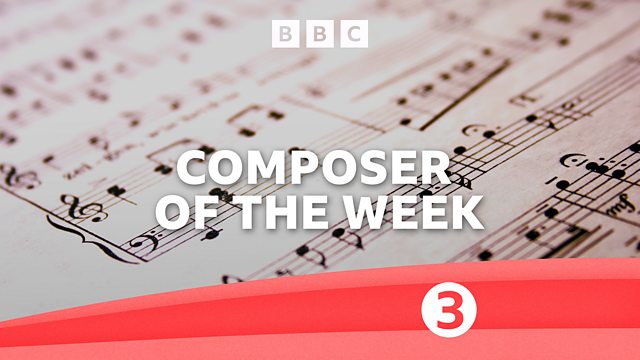
Composer, Performer, Scholar
Donald Macleod examines the context of Louise Farrenc's life. A skilled keyboard player, she also was a talented a composer for multiple combinations of instruments.
Composer of the Week marks its 70th birthday by featuring a composer suggested by Radio 3 listeners.
Over the last seven decades, Composer of the Week has explored the life and music of just about every major composer in classical music, and plenty of less well-known names too. As the programme reached its 70th birthday this year, Donald Macleod challenged listeners to come up with a composer who had never appeared on the programme before. Over four-and-a-half-thousand suggestions were sent in, including figures from all kinds of historical periods and musical genres. This special anniversary week of programmes explores just one of those names: a composer whose story seems particularly intriguing. Her music was much celebrated in her lifetime, indeed it remains as beguiling today as it was to her audiences in 19th century Paris. Listeners may wonder how the name of Louise Farrenc became so lost to history.
Louise Farrenc may not be a household name in the twenty-first century but in her own lifetime she enjoyed a career of international standing; her music was played across Europe. She was twice recognised by the French Institute for her outstanding contribution to chamber music and she was also an accomplished pianist who received favourable reviews for her public performances. For thirty years she was a valued teacher at the Paris Conservatoire and, in the latter part of her life, she devoted the majority of her time to the preparation of a groundbreaking anthology of keyboard music, dating from the 16th to the 19th century.
Farrenc was born in 1804, a year before Fanny Hensel, Felix Mendelssohn's older sister. However, the fifty plus published works that make up her legacy, immediately set her apart. While the majority of her contemporaries had a tendency to focus on smaller forms, songs, choral works and salon pieces for the piano, Farrenc's creative interests involved writing music for much larger combinations of instruments, including quintets, a sextet, a nonet, orchestral overtures and three symphonies.
Donald Macleod begins his survey by examining the context of Louise Farrenc's life. Paris born, she remained in the capital, a centre of musical excellence, her whole life. We get an idea of her keyboard skills in a concert waltz, while her abilities as a composer for multiple combinations of instruments are admirably displayed in an excerpt from her first symphony and a piano quintet.
Last on
More episodes
Previous
You are at the first episode
Music Played
-
![]()
Louise Farrenc
No. 19 Presto from Trente Etudes, op.26
Performer: Konstanze Eickhorst.- CPO.
- 999 879-2.
-
![]()
Louise Farrenc
Valse brillante, op. 48
Performer: Konstanze Eickhorst.- CPO.
- 999 879-2.
-
![]()
Louise Farrenc
Symphony no 1 - 1st Mv Andante sostento allegro
Performer: NDR Radiophilharmonie.- CPO.
- 999 603 2.
-
![]()
Jeanne Louise Dumont Farrenc
Quintet no. 1 in A minor Op.30 for string trio, double bass & piano
Performer: Schubert Ensemble of London.- ASV.
- CD DCA 1122.
Broadcasts
- Mon 16 Dec 2013 12:00����ý Radio 3
- Mon 16 Dec 2013 18:30����ý Radio 3
Beethoven Unleashed – the box set
What was really wrong with Beethoven?
Composers A to Z
Who knew? Five eye-opening stories from Composer of the Week
Five reasons why we love Parry's Jerusalem
What is the strange power of Jerusalem which makes strong men weep?
A man out of time – why Parry's music and ideas were at odds with his image...
The composer of Jerusalem was very far from the conservative figure his image suggests.
Composer Help Page
Find resources and contacts for composers from within the classical music industry.





